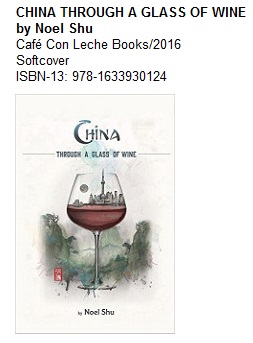As a double immigrant who worked his way through high school and university, I am a big believer in the lifelong benefits of working on the front line, early in life. My first job was an eye opener to say the least.

As a double immigrant who worked his way through high school and university, I am a big believer in the lifelong benefits of working on the front line. My first job was in frontline customer service at age 16 for Canada’s largest sports store chain, Collegiate Sports (now Sport Chek), in a flagship mall in Toronto. I started as a salesclerk selling shoes, retail apparel, ski equipment, and stringing tennis racquets.
As a student athlete, I was fortunate to work in a large sports department store situated in a multicultural city and to serve all kinds of people across various ages and income groups.
Our customers ranged from consummate “old stock Canadian” athletes, who were fanatical about every detail when ordering custom equipment, to wide-eyed gullible immigrants whose children were seeking to learn a new sport like ice hockey or snowboarding. It was a fast paced atmosphere with dense traffic in the evenings and buzzing with energy on the weekends like a casino hotel on the Las Vegas strip.
It was also a very demanding job because it required being on your feet for 8 hours per shift and being constantly “switched on” to anticipate customer needs. Employees engaged in their first front line customer service role developed emotional intelligence through hundreds of daily interactions with customers. Over time, I learned how to read customers’ non-verbal facial expressions and body language, which varied widely by their ethnicities, stage of life, and other factors.
The job required meticulous knowledge of every major sporting activity, current and incoming inventory, and prices for disparate product lines and brands while also including labor intensive tasks such as tagging the products, stocking the shelves, and cleaning the store after hours. Determining the best allocation of shelf space was a key decision. There were no “smart technologies” such as sensors, cameras, big data, and analytics used by retailers today to manage inventories and shelf-space. Hence arranging the optimal product assortment on the floor to generate traffic was an essential part of the job that required teamwork and an entrepreneurial mindset of experimentation through trial and error.
The store manager was a flamboyant French-Canadian named Guy who was a die-hard Montreal Canadiens fan with a profound sense of humor.
Typical of 1980s Toronto, the staff was composed of up-and-comers, including many Asian, European, and Caribbean immigrants. Guy was great at motivating staff, casting people in the right departments, creating internal sales contests, and holding us accountable. He had a keen eye for talent and was adept at identifying and investing in adaptive learners who could conquer a multifaceted department such as ski equipment or hockey skates by efficiently conveying product knowledge to outsell others.
Guy’s greatest skill was building an informal talent marketplace to grow the business in one of the world’s most diverse cities. He understood that a high performing diverse team of employees who felt like the store was their own business would not just generate loyal customers but grow the sports retail business by engaging new communities. Under his leadership, the store became an incredibly diverse meritocracy of over 500 full time and part time employees: Caribbean kids rose from selling track shoes to managing winter sports and Asian women ascended from selling apparel to assistant manager roles overseeing budgets and purchasing. I remember training a Jamaican immigrant, who happened to be the best sprinter in Toronto, how to string tennis racquets at optimal tensions depending on the player’s style, and she taught me about the subtle differences in track and field spikes depending on specific events and surfaces.
Like any store environment, it was not always pleasant. When the store missed its numbers by a wide margin, Guy scolded us for not being sufficiently productive.
He would curse at us with Quebecois nouns, poke fun at our beloved Toronto Maple Leafs, and if revenues were under budget, walk us back to his office which doubled as “banc des pénalités” (“penalty box”). His diminutive office was adjacent to the boisterous warehouse receiving truck shipments, welding, and assembling equipment. Here Guy would shout out the disappointing financial results and present the dormant inventory and the blue-collar workers whose strenuous labor made it possible for us to sell these products on the floor. He reminded us that even the most talented players end up in the penalty box and cost their team when they fail to play together and trust their teammates.
Over the course of four years, this job taught me three things I would use in the rest of my career: First, the benefits of building a high-performing team of diverse colleagues who could teach each other through an apprenticeship model rather than formal training; second, how professional development is accelerated by highly demanding customers who make purchase decisions in a matter of seconds; and third, how the real world has a magical way of revealing where your greatest talents reside, even if it contradicts what your teachers and test scores suggest are your perceived strengths.
In my last year on the job, Guy got promoted to regional VP overseeing 100 stores in Eastern Canada.
Still, he sought me out once every few months. In our last few meetings, he expressed his gratitude that I helped recruit tens of what he called “gens talentueux” or highly talented and diverse employees – mostly high school athletes and musicians – that drew waves of new customers into his stores and grew the business. The last few times we met, Guy tried to persuade me to become a store manager and retail executive like he was. As an Asian immigrant with Ivy League dreams, I was not ready to take the store manager career path.
However, years later after graduate school and a stint in management consulting, I joined the hospitality industry where I was able to harness this cross-cultural competence to achieve breakthrough results. And when I became an operating executive and eventually a hospitality CEO, it made an even bigger difference. Thanks to years on the front line, I was able to swiftly unearth customer needs, connect deeply with front line employees and build collaborative cross-cultural teams. My front line experience was most helpful in relating to employees in emerging markets such as Shanghai where I had no prior work experience, did not speak the language, and had to motivate migrant workers, mostly mothers living apart from their children.
It was my years serving on the frontline in retail, sports, and healthcare that taught me to how to collaborate with colleagues, look customers in the eye and resolve their complaints, form teams to solve thorny problems, and meet the litmus test of becoming a leader by identifying and developing other people’s talents.
Service industries are not just the largest employers: they are engines of human development for communities, cities, countries, and entire civilizations. From the United States to China and Saudi Arabia, business, and government leaders “get it” and are investing billions to rebuild human capital in hospitality centric service industries after the pandemic. These diverse stakeholders recognize the critical role of service industries in rebuilding their countries, diversifying their economies, and facilitating meritocracy for domestic and foreign employees of all ages, races, ethnicities, and genders.
Surprisingly, their efforts are increasingly lost on the workforce. Instead, a talent disruption, powered by innovative technologies such as generative AI, changing attitudes towards work-life balance, and a growing mistrust of capitalism and governments is changing the equation. Millions of Gen Xers and Millennials are choosing the gig economy or hybrid jobs where they can effortlessly circumvent human interaction and avoid the discomfort of face-to-face conflicts. Groundbreaking technologies such as generative AI may accelerate this talent disruption, further distancing employees and contract workers and hence brands from their customers.
Consequently, brands that achieved differentiation through personalized service may suffer from commoditization. What is more troubling are the long-term career development implications for individuals, especially Gen Xers and Millennials who are set to become the next generation of service managers and grew up performing these gig economy jobs.
Driving around town and leaving bags at a front door with pictures, communicating via text confirmations, and receiving tips based on algorithms is not an equivalent experience to being on the frontline in a service operation.
It may provide contractors with flexibility and income, but it comes at the cost of a lack of learning and customer contact that will serve to stunt their professional growth. What is the solution here? Given this historic talent disruption, what is the path forward for business and government leaders in industries such as hospitality, retail, and healthcare that are experiencing long-term labor shortages and growing unionization? Should employers, including entrepreneurs such as franchisees, increase their investments in acquiring, developing, and compensating talents? Or should they invest in AI and other technologies to automate and reduce their investments in building human capital? What other alternatives, if any, exist?

My first job was in a sporting goods store.


 International-renowned sommelier, Noel Shu, provides in-depth look at the modern Chinese wine industry and guides us through the misty vineyards and crowded wineries of China.
International-renowned sommelier, Noel Shu, provides in-depth look at the modern Chinese wine industry and guides us through the misty vineyards and crowded wineries of China. About the Author
About the Author